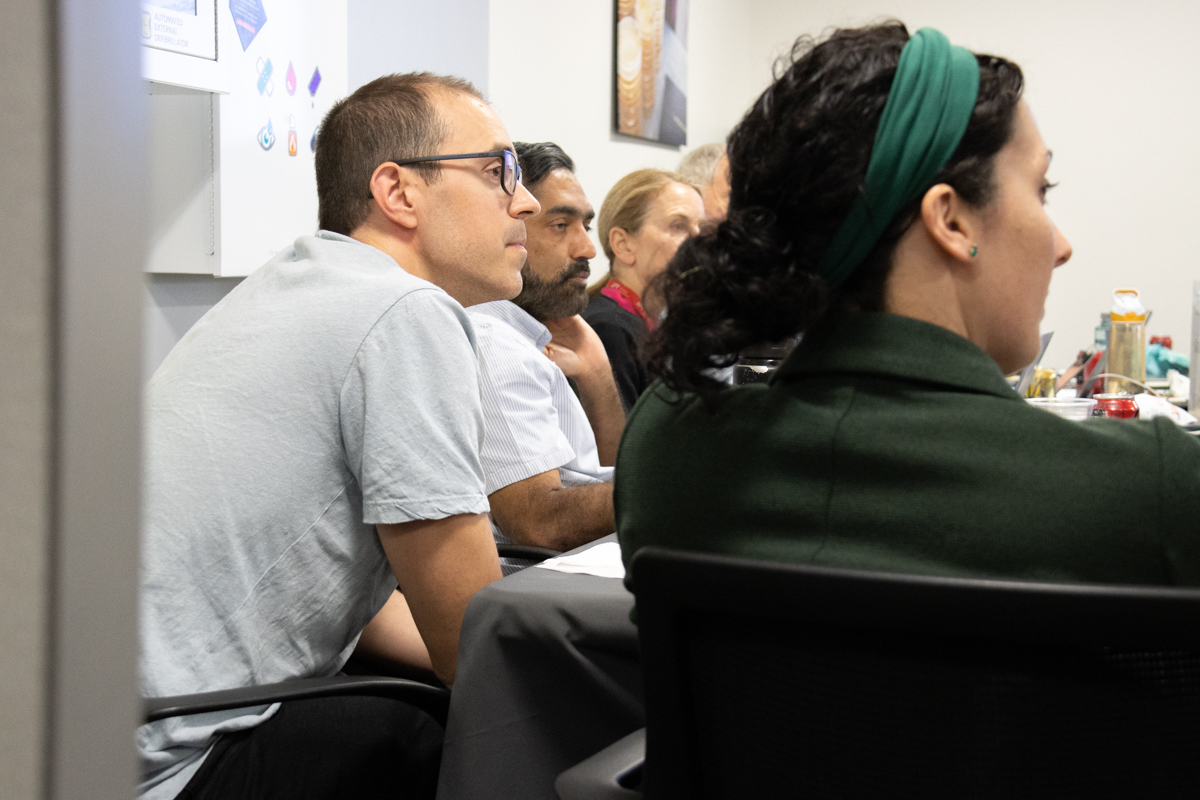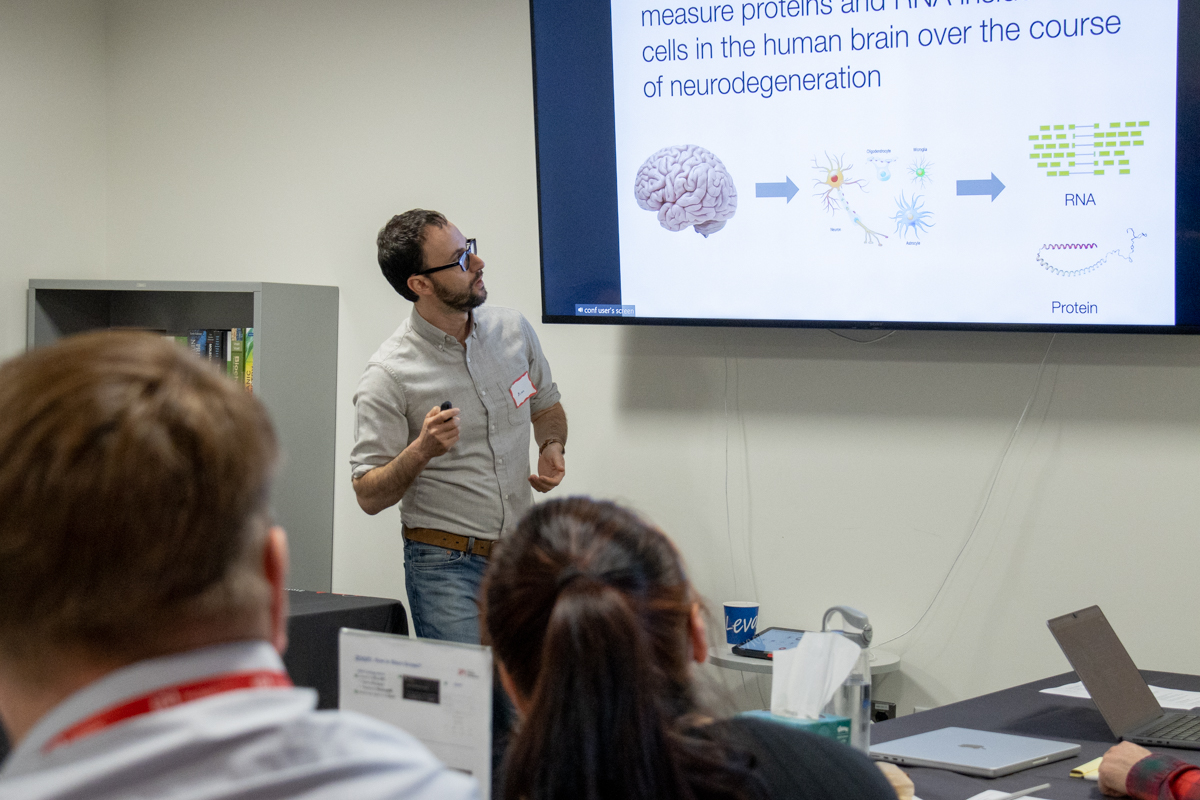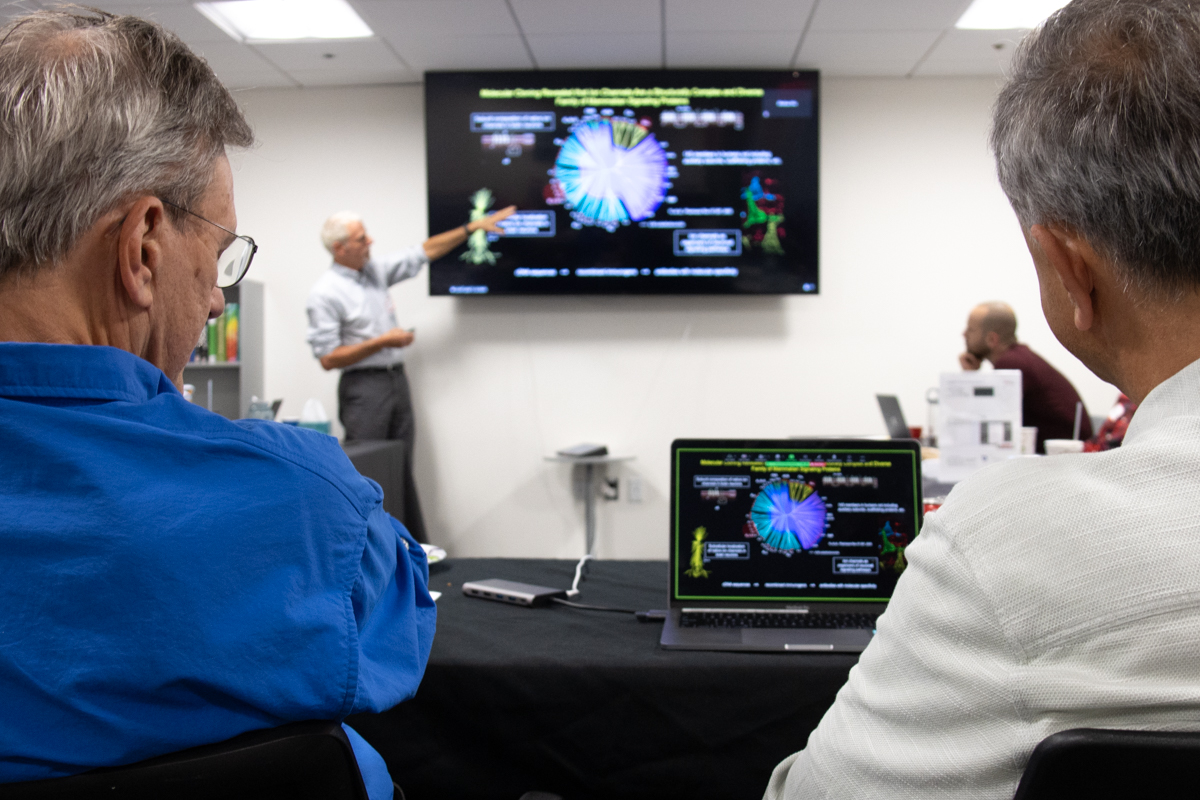The Institute for Protein Innovation (IPI), typically quiet on a Sunday afternoon, buzzed with excitement as dozens of researchers gathered, ready to share new data on a number of novel antibodies.
“This is really an experiment,” said Rob Meijers, head of the neuroscience program at IPI, as the participants took their seats. “It’s our first of many workshops to come, and a test as to whether a community approach to antibody development can work.”
Since its launch in 2017, IPI has carefully tuned its platform, built an experienced team and steadily scaled up antibody discovery and production. Then in spring 2024, the Institute released its first suite of antibodies, targeted to integrin receptors. A collection of much-requested epitope tag antibodies quickly followed.
Now, the Institute was preparing to launch a set of antibodies to an assortment of neurobiology-focused targets: receptor proteins pivotal to axon guidance, synapse function and early development. But these proteins can be particularly hard to target due to their membrane-bound nature. If used as therapeutics, antibodies to the receptors would have the difficult job of penetrating the blood brain barrier. These and other challenges leave scientists trying to solve neurobiology questions with limited tools to detect, track or block their proteins of interest or understand their molecular structure and function.
The Institute sought a way to bring in researchers early on, during the development of those protein tools. This move would ensure relevancy in real-world use cases and verify internal validation results. IPI looked to the long-running Human Leucocyte Differentiation Antigens (HLDA) workshops and wondered: Could we distribute early-stage binders for community members to test in their own labs?

A community model
The HLDA workshops, renowned in the antibody research world, were born of the hybridoma-driven protein boom of the 1980s. Monoclonal antibodies were fresh on the scene and labs were producing a flood of new proteins. In this deluge, it was difficult to know which antibodies targeted the same molecules, let alone how they compared.
Particularly frustrated by that reality, a network of leukocyte researchers — including IPI co-founder Tim Springer and his then-advisor César Milstein — came together to evaluate leukocyte markers produced in labs around the world. Beginning in Paris in 1982 and continuing until 2014, an organizing lab would code antibodies and send them out to other labs to run blind tests against different cell types.
The testing selected for “robust reagents — antibodies that work under a variety of experimental conditions,” according to the organizing body, Human Cell Differentiation Molecules. Additionally, these testing labs had a variety of specialities that allowed information on novel molecules to be quickly crowdsourced.
Over time, the workshops would expand their purview beyond leukocyte markers and come to be seen as a trusted independent validation of antibody specificity and usability. To date, the HLDA effort has validated and standardized the nomenclature for more than 400 molecules, and enabled their unadulterated use in research, diagnosis and therapy.
Taking inspiration
IPI aimed to capture this spirit in its community workshops for antibody field testing.
“We’re in a totally different era now,” Meijers said. “But I think it’s still really important for us to do this sort of crowdsourcing of antibody validation.”

IPI antibodies undergo thorough characterization and validation in the organization’s Boston-based lab. But many researchers acknowledge that this does not guarantee antibodies will prove reliable in their own labs — where applications, conditions and research goals may vary.
“A lot of researchers understand that commercial antibodies may or may not work in their hands with their applications,” said Deborah Moshinsky, head of antibody characterization and validation at IPI. “I think we have the opportunity to help by being really open with sharing protocols, conditions and data.”
IPI’s June workshop showed promising beginnings, with researchers reporting findings on antibodies targeting neurobiology-related receptors, including glypicans, netrin, ROBO, Frizzled and TGF-β. The stars of the show were neurexin antibodies, which demonstrated particular strength and specificity — debuting, perhaps, the first pan-neurexin antibodies that work in immunocytochemistry. IPI is now reviewing the data, collecting new insights from collaborators and making any improvements where necessary to ensure protein reliability. And the Institute intends to provide this data forward to inform future experimentation.
“The external validation data supplements our own testing,” Moshinsky said. “It’s this back-and-forth that really sets our antibodies apart and gives researchers peace of mind.”
IPI is currently recruiting more beta antibody testers and is planning additional workshops into spring 2025. They recommend interested scientists reach out via email to get involved.
“It has been a very humbling experience to learn and interact with the users to make sure antibodies work for the purpose that they’re supposed to be made,” Meijers said. “We’re really relying on the community to help.”
Sources:
Deborah Moshinsky, deborah.moshinsky@proteininnovation.org
Rob Meijers, rob.meijers@proteininnovation.org
Writer: Caitlin Faulds, caitlin.faulds@proteininnovation.org
About IPI
The Institute for Protein Innovation is pioneering a new approach to scientific discovery and collaboration. As a nonprofit research institute, we provide the biomedical research community with synthetic antibodies and deep protein expertise, empowering scientists to explore fundamental biological processes and pinpoint new targets for therapeutic development. Our mission is to advance protein science to accelerate research and improve human health. For more information, visit proteininnovation.org or follow us on social media, @ipiproteins.


